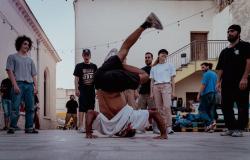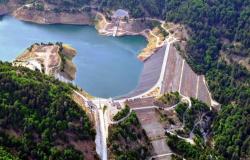
From rocky defender on the pitch to ruthless attacker in the transfer market. It is the path that the Granata people hope will be followed by Marcello Pizzimenti, promoted to new sporting director of Reggiana.
The Sicilian manager turned 54 last April 27th in his hometown Palermo, just as he witnessed Reggiana’s victory over the Rosanero (2-1 at “Barbera”).
Pizzimenti played football at a fair level before diving into the world of desks and ties. He begins his love affair with football playing on the dusty fields of Sicily. The adventure in the ‘big boys’ began in the Favara Sports Union, in the province of Agrigento (Favara is also the city of Salvatore Vullo, coach of Reggiana between May 2001 and March 2002). Favara signed Pizzimenti in 1987 (he was 17 years old) from the youth sector of Cosmos Palermo. At the end of his career, the new Granata sports director made over 150 appearances between C1 and C2 and more than 130 between D and Interregional.
Favara’s sporting title passed to Agrigento and Agrigento-Favara was born, which years later would become Akragas, and Pizzimenti also moved to the Agrigento team. Then Palermo Olympia, Massese, Catania, Catanzaro, Moncalieri, Ivrea, and the closing at Foligno. Here at the age of 35, in 2005, he hung up his boots and started as a manager.
He remained in Foligno until 2013 in various roles: technical director, sporting director, also interim coach for four matches (in December 2005, in Serie C2). A very short parenthesis. After all, Pizzimenti had already said it clearly in 2013, when in Foligno they wanted him permanently on the bench: “Years ago I made a very specific choice by obtaining the qualification as sports director. This is my present and my future”. He added. “Learning from Federico Cherubini I took this profession to heart.” Yes: in Foligno, in fact, the general director was Cherubini himself, originally from the city of Perugia, who has been at Juventus for 12 years in various managerial roles. Historical courses and recurrences become apparent in October 2020. Pizzimenti is in Perugia and in the meantime Cherubini is promoted to ‘football director’ of Juve. In an interview at the time, Pizzimenti spoke these words. “When we were together in Foligno I told him: you will be one of the best managers in Italy”.
After Foligno, Perugia arrives for Pizzimenti (it was Goretti who noticed him and called him to his side). Then Cosenza (always with Goretti as ‘boss’), a year as an observer at Genoa, and then Reggio Emilia (where he finds Goretti again). There has never been a lack of flair for spotting young talents. In 2013, at Foligno, he said. “This club is a showcase for young people. Watch out for Brunori Sandri, Parma wanted him…”. Brunori, in the following season, moved to Reggiana instead: today he is the goalscoring captain of Palermo. In 2008 Foligno lost the playoff final for Serie B against Cittadella: the coach was Pierpaolo Bisoli, and among the players there was a young Marco Parolo, who would end his career with 351 appearances in Serie A. Over the years in Perugia many times the Nostro’ focused on guys that no one believed in, like the striker Drolè or the midfielder Konate, who arrived with a thousand hopes from Africa. Today, after years with Goretti, it will be Pizzimenti’s turn to attack the market (while waiting for the right-hand man who should be Moreno Zebi). Dribbling everyone starting from the defense.





